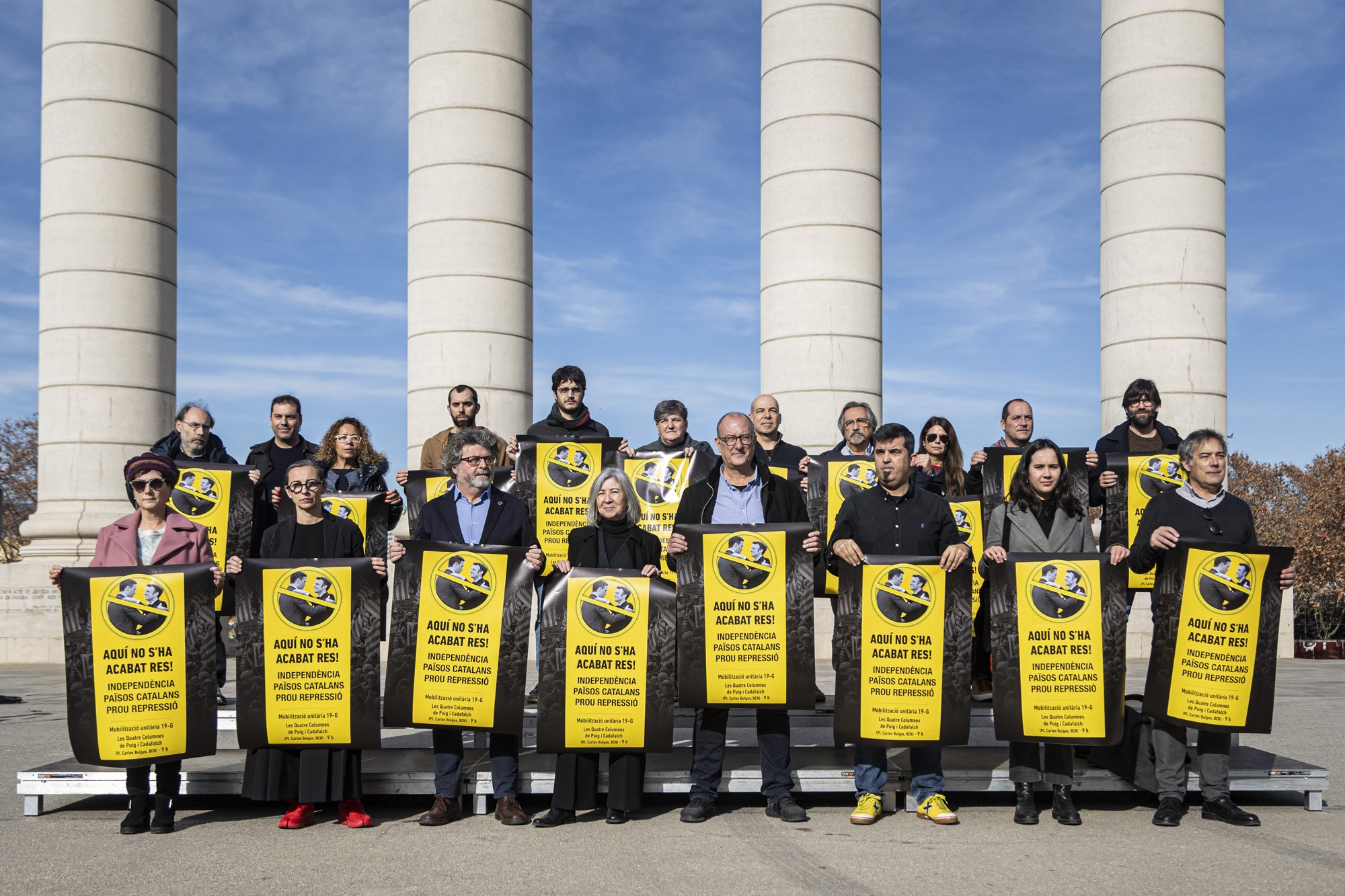The Catalan independence movement will have another chance to display its strength again next Thursday. And the occasion will be no small thing: the Spanish prime minister, Pedro Sánchez, and the French president, Emmanuel Macron, are to meet in Barcelona, specifically at the National Art Museum of Catalonia (MNAC), as part of the latest Spanish-French summit. However, one of the elements underlying this high-level meeting is a clear - and indeed, explicitly stated - desire on the Spanish side to certify that the Catalan independence process is dead. An intended show of strength by the Sánchez government which immediately prompted the independence movement to organize a "forceful response to the umpteenth provocation" of the state.
In total, there are around thirty organizations from civil society in Catalonia that have chosen to join the protest. The main pro-independence groups will be there, such as the Catalan National Assembly (ANC), Òmnium Cultural and the Council of the Republic, but also others such as the Association of Municipalities for Independence, Estat Català, the Intersindical-CSC union and the Meridiana Resisteix protest group. And the three main pro-independence parties (ERC, Junts and the CUP) have joined. The protest will take the form of a rally, and will be located on the steps that go up Montjuïc to the MNAC itself, specifically on the esplanade in front of the four Ionic columns designed by Puig and Cadafalch. The start time will be 9am on Thursday, January 19th - and although it is a working day, the participating groups are confident that this will not be a reason for people to stay away. The slogan for the day: Aquí no s'ha acabat res. Independència Països Catalans. Prou repressió - "Nothing has ended here. Independence for the Catalan Lands. End the repression".
An "act of domination" that must not stand
The groups presented the rally in a joint press conference held in the location where the protest will take place. The president of the ANC, Dolors Feliu, called for the public to take to the streets to show their rejection of this attempted "occupation". "We don't share it and we can't allow it." Feliu also took the opportunity to reject the decision by the president of Catalonia, Pere Aragonès, to attend the summit despite the fact that his party, ERC, is mobilizing against it. "It's a contradiction, we ask him not to go," she said. However, if in the end, he does, the ANC considers that he must put the self-determination debate on the table. "We are not respected as a nation."
For his part, the president of Òmnium Cultural, Xavier Antich, said that the independence movement will take to the streets because "it cannot look the other way while the Spanish state continues to deploy its repressive machinery against dissent". "Here there is a political conflict very much alive that the state refuses to face," he stated. The message conveyed by the mobilization must reach far, across the world, to show that the "marketing operations" of the Spanish government will not serve to hide the fact that the independence process is still alive. And he showed absolute confidence, that "without a doubt", the rally will be a success.
And from the exile-based Council of the Republic, Toni Castellà celebrated that the response of independence will be joint. "We are unified in the goal of proving to those who provoke us by saying that the process is over, that this is not the case," he said. "We call on the people of Catalonia to say loud and clear on Thursday that independence is more alive than ever and we will not stop until we achieve it." Castellà acknowledged that on some occasions the movement has not been united and there has been "self-criticism" because the leaderships have not been up to the task, but he has celebrated that "the social majority" will indeed be there. "The people always respond."

